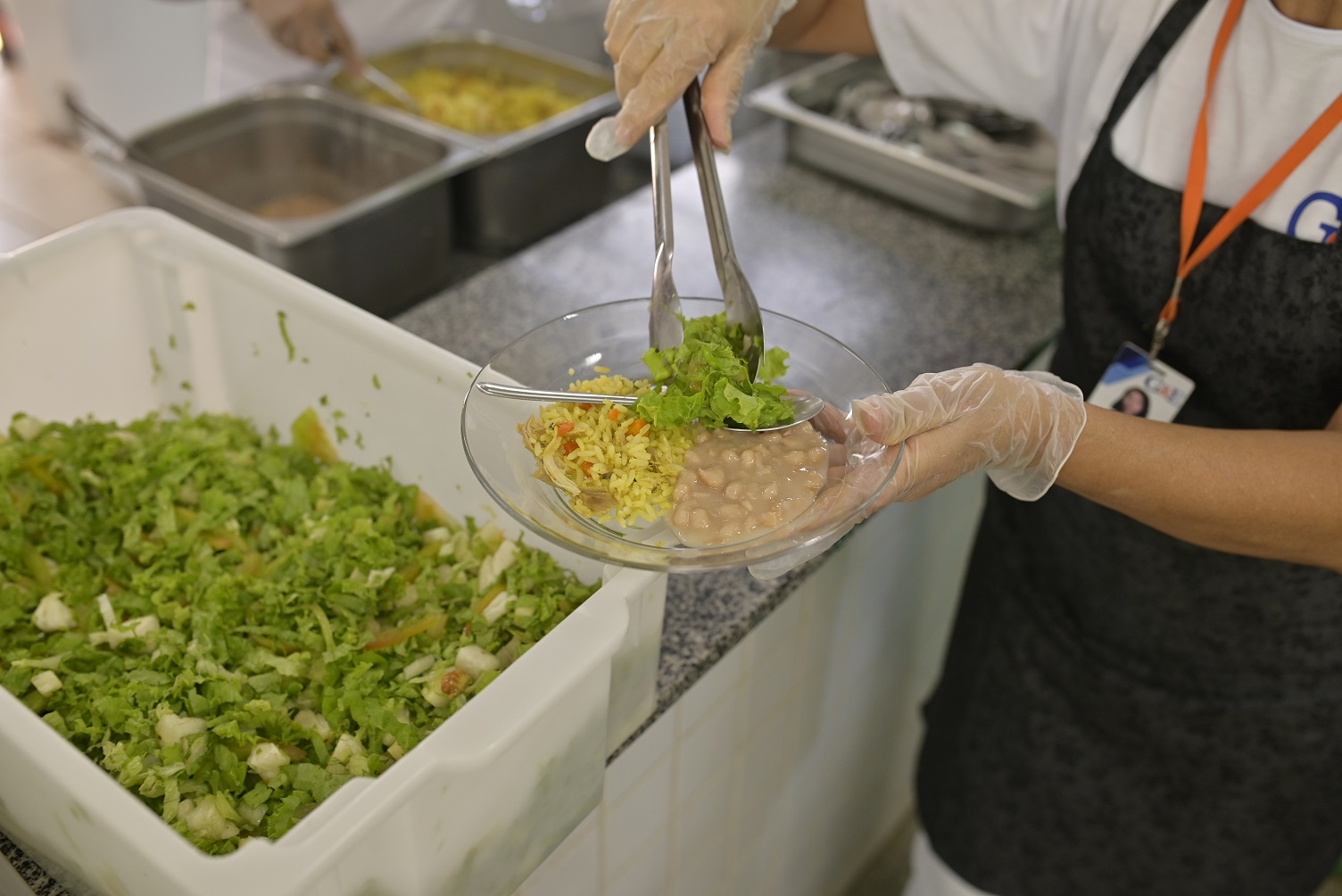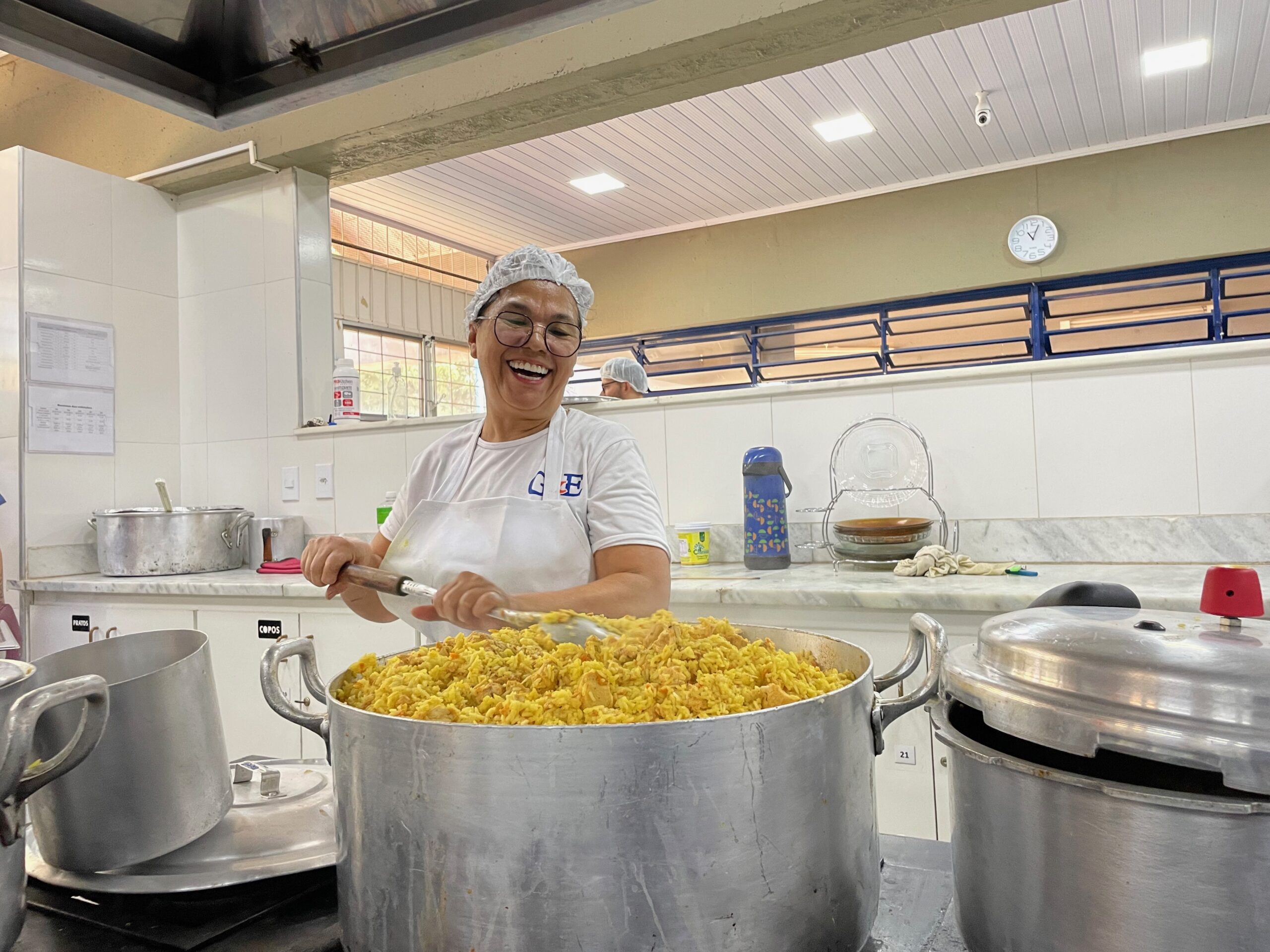
Around 200 participants from more than 20 countries, including government ministers, representatives from international financial institutions and the United Nations, met in Brasília, Brazil, for a three-day event to discuss multi-sector approaches linking education, food security and nutrition for human capital development. The “Power of Multi-sector Approaches for Human Capital Development” event, convened by the United Nations World Food Programme (WFP) and the Inter-American Development Bank (IDB), was organized in close collaboration with the government of Brazil and took place from 29 to 31 August.
At the end of the event, participants agreed on a document with inputs for the October 2023 Global Coalition for School Meals meeting, which will take place in Paris. The document has ten technical inputs on themes such as innovative solutions for financing mechanisms on school meals programmes, norms for a percentage of purchases from smallholder farmers and the connection between school meals programmes and the goals of the Global School Meals Coalition. It also highlights the importance of strengthening the design of those programmes so they can be at the centre of inclusive social protection systems.
“We need strong public investment in order for public policies to work”, said Daniel Balaban, Director of the WFP Centre of Excellence against Hunger in Brazil. “This is why it is important that we are here alongside international financial institutions and specially with ministries of finance”, he added.
During the closing panel, delegations from Jamaica and Belize announced that they are joining the Global School Meals Coalition, and the Mexican delegation invited participants to the 10th Regional School Feeding Forum for Latin America and the Caribbean, which will take place in the country in 2024.
School visits

In addition to the technical panels and discussions, the event programme also included a field visit to five public schools in Brasília so participants could get a closer look at how the Brazilian National School Feeding Programme (PNAE, in Portuguese) is run. The Brazilian programme is the second largest in the world assisting over 40 million students with hot meals each day. Through South-South Cooperation work facilitated by the WFP Centre of Excellence against Hunger, the programme has inspired dozens of other countries in their journeys to create or expand their own school meal programmes.
“In Brazil, we believe in public policy on school feeding led by education,” said Fernanda Pacobahyba, president of the National Fund for the Development of Education. “School feeding is a prerequisite for educational policy to take place in the best possible way. This in Brazil has produced excellent results,” she added.
The PNAE is mostly run by local administrations, which manage menus, food purchases and nutritional education activities. The Federal District government, where Brasília is located, serves over 500,000 meals a day to over 520,000 students. The region also employs 52 nutritionists, who are in charge of implementing nutritious menus and incorporating local and seasonal foods to the meals.
At a primary school in the sub-region of São Sebastião, delegations heard from Michelly Slanny, part of family farming association of over 50 members. Around 90% of what is produced by the association is sold to government programmes, including PNAE. “Winning a public bid is cause for celebration in our community,” Michelly said. “We have been providing food to PNAE since 2018 and this is one of the biggest sources of income for family farming, it means security for us, we work all year round for this,” she added.
New publications

The event also marked the launch of the report on “State of School Feeding in Latin America and the Caribbean 2022” produced by WFP and the IDB, which offers comprehensive insights into the state of school feeding in the region: scale, coverage, components, and impacts. It emphasizes the need to reach vulnerable children to prevent dropouts and promote holistic development. The publication emphasizes the importance of integrating health and nutrition interventions along with school meals programmes via multisectoral approaches.
Another regional study on “Social Protection Pathways to Nutrition”, created in partnership between the Institute of Development Studies (IDS), International Food Policy Research Institute (IFPRI) and the World Food Programme (WFP), was also launched during the event. The overarching goal of the study is to review the evidence and propose an analytical and operational framework that links social protection to better nutrition outcomes.




